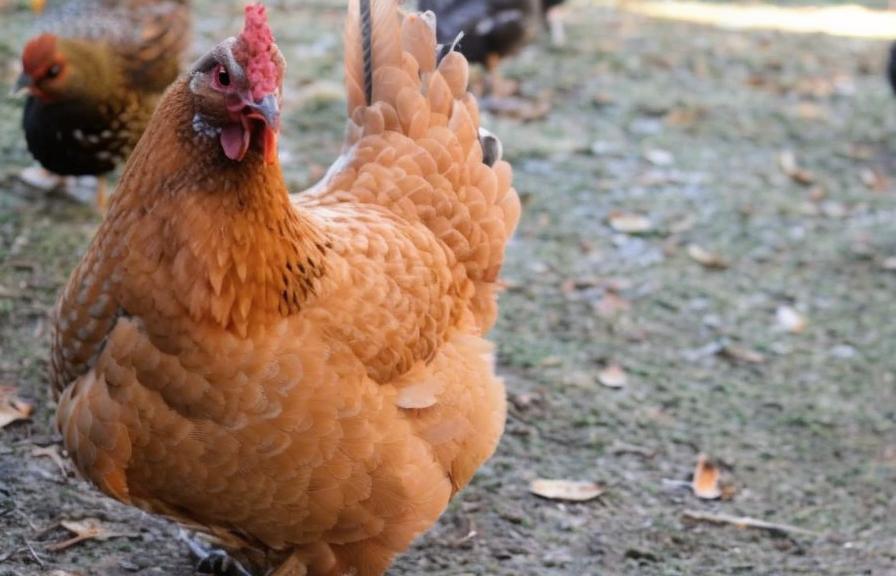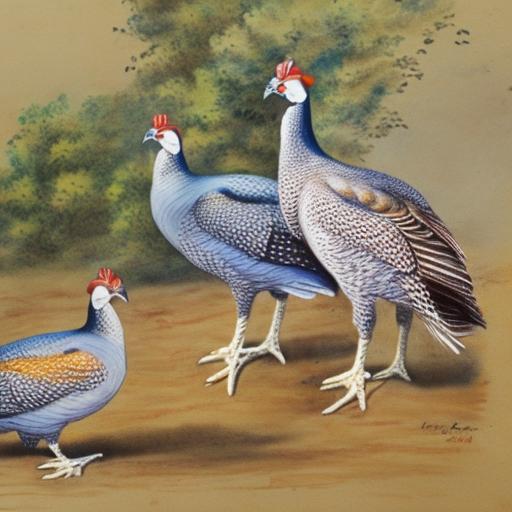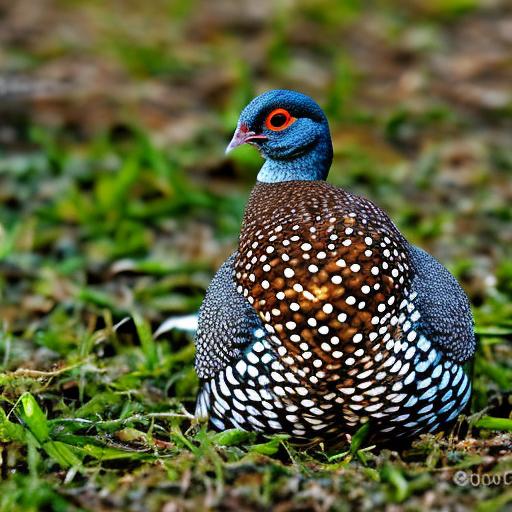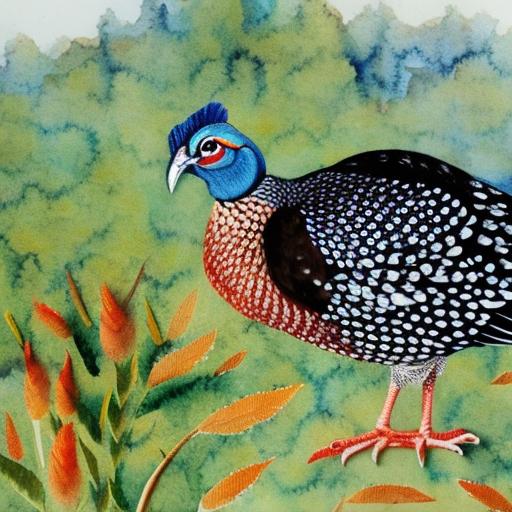Guinea fowl breeding is a rewarding and enjoyable endeavor for many poultry enthusiasts. These unique birds are known for their striking appearance, loud calls, and excellent pest control abilities. Breeding guinea fowl can be a fulfilling experience, whether you are a small-scale hobbyist or a commercial breeder. Guinea fowl are hardy birds that are relatively low-maintenance, making them an attractive option for those looking to venture into poultry breeding.
Guinea fowl come in a variety of colors, including pearl, lavender, and royal purple, and they are known for their distinctive spotted feathers. They are also valued for their ability to consume large quantities of insects, making them an excellent natural pest control solution for gardens and farms. Additionally, guinea fowl are known for their alert and watchful nature, making them effective guards against predators. Breeding guinea fowl can be a profitable venture, as their eggs and meat are in high demand in many parts of the world. Whether you are interested in breeding guinea fowl for their pest control abilities, their unique appearance, or their commercial value, understanding the breeding process is essential for success.
Key Takeaways
- Guinea fowl breeding is a rewarding venture that requires careful planning and preparation.
- Choosing the right breeding stock is crucial for successful breeding and healthy offspring.
- Preparing for breeding season involves creating suitable nesting areas and providing proper nutrition for the guinea fowl.
- Signs of breeding readiness include increased vocalization, mating behavior, and the presence of eggs in the nesting area.
- The breeding process involves natural mating or artificial insemination, and careful monitoring of the nesting area for eggs.
- Caring for guinea fowl chicks requires providing warmth, proper nutrition, and protection from predators.
- Conclusion and tips for successful breeding include maintaining a clean and safe environment, providing proper nutrition, and regular health checks for the breeding stock.
Choosing the Right Breeding Stock
Selecting the right breeding stock is crucial for successful guinea fowl breeding. When choosing breeding stock, it is important to select birds that are healthy, active, and free from any genetic defects. Look for birds that have bright eyes, clean feathers, and a strong build. It is also important to consider the temperament of the birds, as guinea fowl can be quite territorial and aggressive during the breeding season. Selecting birds with a calm and docile temperament can help reduce aggression and improve breeding success.
When choosing breeding stock, it is also important to consider the genetic diversity of the birds. Inbreeding can lead to genetic defects and health problems in the offspring, so it is important to select breeding stock from different bloodlines. This will help ensure the health and vitality of the chicks. Additionally, consider the age of the birds when selecting breeding stock. Younger birds are generally more fertile and have a longer breeding lifespan, so it is advisable to select birds that are in their prime breeding age. By carefully selecting the right breeding stock, you can lay a strong foundation for a successful guinea fowl breeding program.
Preparing for Breeding Season
Preparing for the breeding season is essential for successful guinea fowl breeding. The breeding season for guinea fowl typically begins in the spring when the days start to lengthen and the weather becomes warmer. Before the breeding season begins, it is important to ensure that the birds are in good health and condition. This includes providing them with a balanced diet, access to clean water, and adequate shelter. It is also important to provide the birds with a suitable nesting area where they can lay their eggs.
In addition to ensuring the health and well-being of the birds, it is important to create a suitable breeding environment. Guinea fowl prefer to breed in a quiet and secluded area away from disturbances. Providing nesting boxes or secluded areas with suitable nesting materials can encourage the birds to lay their eggs in a safe and secure environment. It is also important to provide the birds with access to natural sunlight and fresh air, as these environmental factors can have a positive impact on breeding success. By taking the time to prepare for the breeding season, you can create an environment that is conducive to successful guinea fowl breeding.
Signs of Breeding Readiness
Understanding the signs of breeding readiness is essential for successful guinea fowl breeding. As the breeding season approaches, male guinea fowl will become more vocal and display aggressive behavior as they compete for the attention of females. They will often puff out their feathers, fan their tails, and emit loud calls to attract mates. Female guinea fowl will also display signs of readiness by seeking out suitable nesting sites and laying eggs.
In addition to behavioral signs of readiness, it is important to monitor the physical condition of the birds. Female guinea fowl will often develop a prominent red comb and wattles as they become sexually mature and ready to breed. They may also exhibit changes in their behavior, such as increased vocalization and restlessness. Male guinea fowl will also display physical signs of readiness, such as increased aggression and territorial behavior. By understanding these signs of readiness, you can determine the optimal time for breeding and ensure successful mating and egg production.
Breeding Process
The breeding process for guinea fowl begins with courtship behavior displayed by the males as they compete for the attention of females. Male guinea fowl will puff out their feathers, fan their tails, and emit loud calls to attract mates. Once a male has successfully courted a female, mating will occur. Guinea fowl mating is typically brief but intense, with the male mounting the female from behind.
After mating has occurred, female guinea fowl will begin laying eggs in their chosen nesting site. Guinea fowl are known for their secretive nesting behavior and may choose secluded areas such as dense vegetation or hidden corners of their enclosure to lay their eggs. Once the eggs have been laid, the female will continue to lay eggs over a period of several weeks until she has completed her clutch.
Once the clutch is complete, the female will begin incubating the eggs, typically for around 26-28 days. During this time, it is important to provide the nesting female with privacy and protection from disturbances to ensure successful incubation. After the eggs have hatched, the female will care for the chicks until they are old enough to fend for themselves. By understanding the breeding process and providing suitable conditions for mating, egg laying, and incubation, you can increase the likelihood of successful guinea fowl breeding.
Caring for Guinea Fowl Chicks

Caring for guinea fowl chicks is essential for their health and well-being. Guinea fowl chicks are precocial, meaning they are born with their eyes open and are able to move around shortly after hatching. However, they still require careful attention and protection from predators during their early days. It is important to provide guinea fowl chicks with a warm and secure brooding area where they can be protected from drafts and predators.
In addition to providing a suitable brooding area, it is important to provide guinea fowl chicks with a balanced diet that meets their nutritional needs. This includes providing them with access to high-quality chick starter feed that is rich in protein and essential nutrients. It is also important to provide chicks with access to clean water at all times to ensure proper hydration.
As guinea fowl chicks grow, it is important to gradually introduce them to their outdoor environment while still providing them with protection from predators. This can be done by allowing them supervised access to outdoor areas during the day while returning them to their secure brooding area at night. By providing proper care and attention to guinea fowl chicks during their early days, you can help ensure their health and vitality as they grow into mature adults.
Conclusion and Tips for Successful Breeding
Breeding guinea fowl can be a rewarding experience for poultry enthusiasts of all levels. By understanding the breeding process and providing suitable conditions for mating, egg laying, incubation, and chick rearing, you can increase the likelihood of successful guinea fowl breeding. When choosing breeding stock, it is important to select healthy birds with diverse genetics and suitable temperaments. Preparing for the breeding season involves ensuring the health and well-being of the birds and creating a suitable breeding environment.
Understanding the signs of breeding readiness can help you determine the optimal time for mating and egg production. The breeding process involves courtship behavior displayed by males, mating, egg laying by females, incubation of eggs, and chick rearing. Caring for guinea fowl chicks involves providing them with a warm and secure brooding area, a balanced diet, and protection from predators as they grow into mature adults.
To ensure successful guinea fowl breeding, it is important to provide proper care and attention to all stages of the breeding process. By following these tips and guidelines, you can increase the likelihood of successful guinea fowl breeding and enjoy the many benefits of raising these unique and valuable birds.
If you’re interested in guinea fowl breeding time, you may also want to explore the topic of quail keeping. Poultry Wizard has a helpful article on what vegetables do quails eat, which can provide valuable insights into the dietary needs of quails and how it relates to their breeding and overall health. Understanding the dietary requirements of different poultry species can be crucial for successful breeding and raising of birds.
FAQs
What is the breeding time for guinea fowl?
Guinea fowl typically breed in the spring and early summer months, with peak breeding activity occurring from April to June.
At what age do guinea fowl start breeding?
Guinea fowl generally reach sexual maturity at around 6 to 8 months of age, at which point they can start breeding.
How often do guinea fowl breed?
Guinea fowl are known to be prolific breeders and can lay eggs multiple times throughout the breeding season, with some hens laying up to 100 eggs in a year.
What is the incubation period for guinea fowl eggs?
The incubation period for guinea fowl eggs is approximately 26 to 28 days, during which the eggs are kept warm and turned regularly to ensure proper development.
What are some signs that guinea fowl are ready to breed?
Signs that guinea fowl are ready to breed include increased vocalization, courtship displays, and the formation of breeding pairs within the flock.
How can I encourage successful breeding in my guinea fowl flock?
To encourage successful breeding, provide a suitable nesting area with privacy, ample food and water, and a stress-free environment for the guinea fowl to thrive.
Meet Walter, the feathered-friend fanatic of Florida! Nestled in the sunshine state, Walter struts through life with his feathered companions, clucking his way to happiness. With a coop that’s fancier than a five-star hotel, he’s the Don Juan of the chicken world. When he’s not teaching his hens to do the cha-cha, you’ll find him in a heated debate with his prized rooster, Sir Clucks-a-Lot. Walter’s poultry passion is no yolk; he’s the sunny-side-up guy you never knew you needed in your flock of friends!







